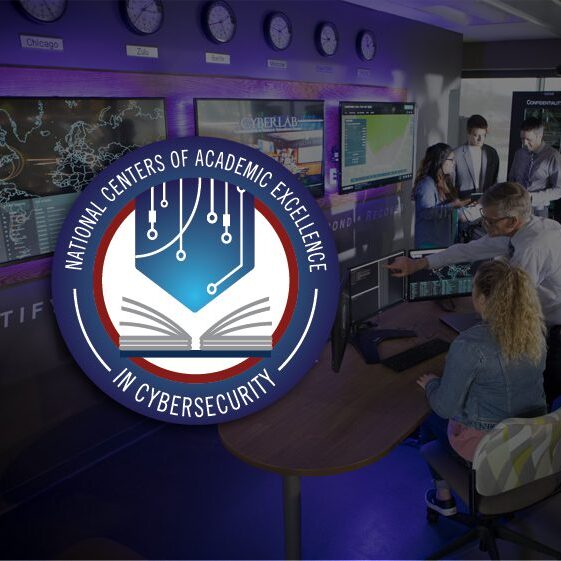Cybersecurity Major or Minor
The Bachelor of Science (B.S.) degree in Cybersecurity is needed in every industry setting making the number of opportunities for cyber professionals fairly large.



ONU Cybersecurity
ONU Cybersecurity Earns Recognition From NSA
Olivet’s Cybersecurity program achieved a major milestone by earning the prestigious National Center of Academic Excellence in Cybersecurity Defense designation. This recognition, awarded by the National Security Agency (NSA), is a mark of excellence that places the program among an elite group of educational institutions.
For students enrolled in the cybersecurity program, this designation offers a significant advantage. As Dr. Rice explained, “Their transcripts will have a notation indicating that they graduated from an NSA-recognized Center of Academic Excellence. Certain employers specifically seek graduates from these designated universities.” This additional credential can be a deciding factor for employers looking for top-tier candidates to fill cybersecurity roles.
average entry-level salary for cybersecurity
years of experience needed
open positions in the U.S.
Classes
This course introduces basic concepts of cybersecurity and information assurance. The course introduces students to the global characteristics of cyber crime, security principles, technologies, and procedures to defend networks. Through interactive, multimedia content, lab activities, and multi-industry case studies, students build technical and professional skills to pursue careers in cybersecurity.
This course provides students with necessary skills to administer Linux based systems. Topics include installation, configuration, and management with focus on security.
Students will learn risk assessment, security documentation processes, how to respond to cyber security related incidents and threats, and chain of custody protocols leading to an understanding of critical infrastructure protection (CIP). This course may be waived with evidence of EC Council Certified Incident Handler Proficiency Exam and Certification, credits to be replaced by additional COMP elective or other University approved course.
This course covers the monitoring of network and computer systems as well as the techniques and tools to detect system intrusions and events.
This course discusses the management of risk and disaster planning in the context of an enterprise network. Learners will develop policies, procedures, and establish a business continuity plan.
This course will cover the discovery and reporting of system vulnerabilities and solutions. This course may be waived with evidence of EC Council Certified Ethical Hacker Proficiency Exam and Certification, credits to be replaced by additional COMP elective or other University approved course.
Basic Linux shell programming. Students will learn and practice: editing files with vi, using built-in bash commands, and writing bash shell script programs for improving productivity and automating system administration tasks.
This course provides students with necessary skills to administer Windows based systems. Topics include installation, configuration, and management of Windows servers and systems with focus on security.
This course dives into an advanced understanding of packet construction and compliance with established protocols and standards. Attention will be placed on using tools to perform packet analysis and the understanding of cybersecurity concerns relating to corrupt or altered packets.
This course focuses on cryptographic systems including public key infrastructure, symmetric and asymmetric encryption, and methodologies. The course also covers the use and application of Blockchain. This course may be waived with evidence of EC Council Encryption Specialist Proficiency Exam and Certification, credits to be replaced by additional COMP elective or other University approved course.
The study of human behavior and social engineering on cybersecurity and cyber crime. Attention will be given to reducing human error and developing techniques to mitigate risk.
Learners in the course will be exposed to techniques and tools needed for cyber investigations and to preserve court admissible evidence.
Olivet Nazarene University Cybersecurity Department

Where Your Future Begins
We Believe. You Belong Here. Discover why Olivet is a place where faith meets calling. Take the first step today.

